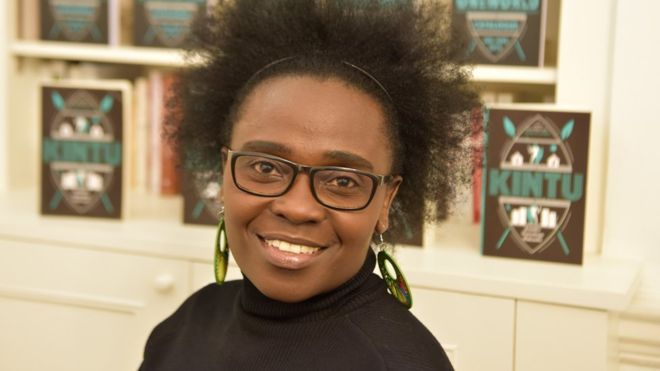A Manchester-based author whose debut novel was initially rejected by British publishers has won one of the world’s richest literary prizes.
Jennifer Nansubuga Makumbi – who’s from Uganda and moved to the UK 17 years ago – has won one of the Windham Campbell Prizes from Yale University in the US.
She will receive $165,000 (£119,000). “I haven’t been earning for a long, long time,” she says.
“I really put everything into writing. So for this to happen is unbelievable.”
The prize money is more than double the amount that the Booker Prize winner gets, and organisers say it’s the richest award dedicated to literature after the Nobel Prize.
Makumbi is one of eight writers to receive Windham Campbell Prizes this year spanning fiction, non-fiction, drama and poetry – and is the only winner to have published just one full-length work.
Two other British writers are also on the list, both for non-fiction – Sarah Bakewelland Olivia Laing.
‘Too African’
The prizes were created by writer Donald Windham and also carry the name of his partner Sandy M Campbell. They were first awarded in 2013 to “provide writers with the opportunity to focus on their work independent of financial concerns”.
Makumbi said news of the award came out of the blue. “It’s American, and normally it’s people who have got so many books [behind them],” she said. “So I’m surprised how I was one of them.”
Makumbi’s debut novel Kintu was first published in Kenya four years ago after British publishers rejected it for being “too African”. It was finally released in the UK this January.
The author said British publishers and readers like to have something they can relate to – be it Western characters or familiar settings and storylines – if they’re reading about Africa.
But she describes Kintu as “proper, proper Africa”.
The book conjures myths and legends to tell the story of a Ugandan family who believe they have been cursed over 250 years.
“I had really locked Europe out,” Makumbi says. “But it was a little bit too much – the language, the way I wrote it – they [Brits] were not used to that kind of writing. But they are beginning now to open up I think.
“Readers are realising, OK, if I want to explore Africa I’d rather be told from an African point of view rather than being told things that I’m expected to want to know.”
‘It’s about getting a paycheque’
Makumbi was a high school teacher before moving to the UK to pursue her dream of a writing career. She began by studying creative writing in Manchester, then wrote Kintu while doing a PhD in Lancaster.
The Windham Campbell Prize will help spread the word about the book – but for Makumbi, for now at least, the prize money will be the thing that changes her life.
“I would like to say it’s more about getting to be known and whatever, but mainly it’s about getting a paycheque,” she admits.
“It’s mainly about [doing] ordinary things that other people do that have a job. I have a partner but he’s not earning much and I’ve not been really pulling my weight.
“I’ve just been taking and taking, and we are a working class family, so it’s huge. And then, of course, now I can go and do research in different countries for my next project.”
‘Shocked’ by British life
She didn’t have to travel far to research a short story collection that will come out next January. It’s title is Love Made in Manchester.
“I write the stories as a way of writing back to Ugandans, informing them what happens to us,” she says. “I’m telling them, ‘You want to come to Britain? Hang on a minute. First read my story.'”
So what impression will Ugandans get of Britain if they do?
“It’s not the world that they’ve been told it is. When you’re in Uganda, Britain is the London Eye, Buckingham Palace, The Savoy, The Ritz – because this is how Britain markets itself.
“You never see the working class. That is what takes you by surprise. It’s just shocking.
“You come here and see the working class and you’re like, I should have paid attention to Dickens!”





